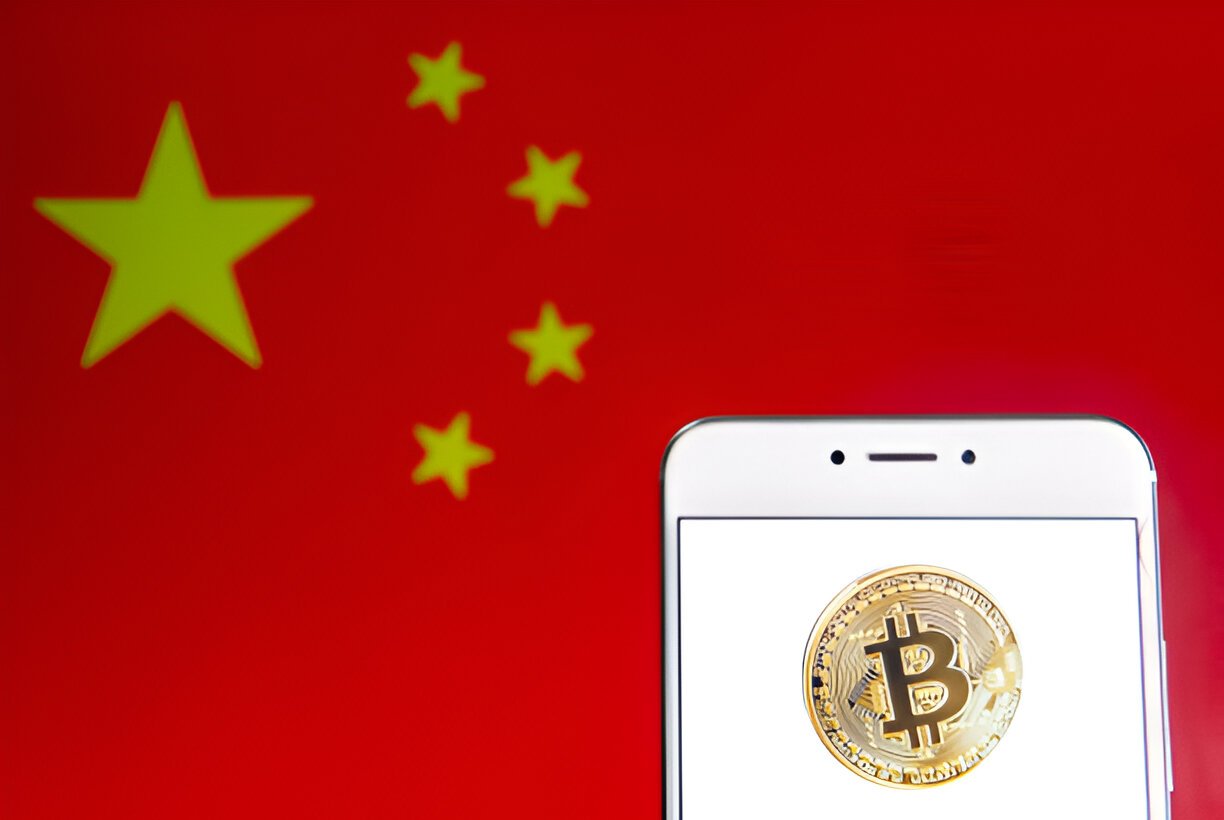Cryptocurrencies have become a global phenomenon, with Bitcoin leading the charge as the most valuable and widely recognized digital asset. As Bitcoin prices reach historic highs, discussions about its legal status and regulation are intensifying worldwide. In China, where stringent restrictions on cryptocurrency-related business activities exist, a recent ruling by a Shanghai court has brought clarity to the contentious issue of crypto ownership.
The court’s opinion, expressed by Judge Sun Jie of the Shanghai Songjiang People’s Court, establishes that individuals are legally allowed to own cryptocurrencies in China. This ruling provides a crucial distinction: while holding cryptocurrencies as personal property is not against the law, commercial activities involving these digital assets remain heavily regulated or outright banned.
This legal clarification arrives at a critical moment for crypto enthusiasts in China. For years, Beijing has aggressively cracked down on the cryptocurrency sector, citing concerns over financial stability and speculative trading. From banning initial coin offerings (ICOs) in 2017 to declaring crypto mining and trading illegal in 2021, the Chinese government has taken a tough stance on digital assets. Despite these measures, the new legal stance on individual ownership signals a nuanced approach to regulating this disruptive technology.
The court’s ruling not only reassures individual cryptocurrency holders but also raises important questions about the future of crypto regulation in China. As the global cryptocurrency market continues to evolve, this decision might influence regulatory frameworks both domestically and internationally. By addressing the balance between individual rights and economic stability, the Shanghai court’s decision could serve as a model for other jurisdictions navigating the complexities of digital asset regulation.
This development highlights a pivotal shift in China’s crypto narrative, offering hope for individual investors while underscoring the government’s determination to maintain control over financial markets.
Shanghai Court’s Ruling
The Shanghai court’s recent declaration on cryptocurrency ownership has clarified a long-standing question about the legal status of digital assets in China. Judge Sun Jie of the Shanghai Songjiang People’s Court delivered a clear message that individuals in China can legally own cryptocurrencies, despite the country’s stringent restrictions on crypto-related business activities. This ruling draws a critical distinction between private ownership and commercial involvement, underscoring the complexities of China’s approach to digital asset regulation.
- Sponsored -

Statement by Judge Sun Jie
In an article published through the Shanghai High People’s Court’s official WeChat account, Judge Sun Jie explained that holding cryptocurrencies as personal property does not violate Chinese law. The ruling emerged as part of a case review concerning a dispute over an initial coin offering (ICO), a form of fundraising that has been banned in China since 2017.
Judge Sun emphasized the distinction between private ownership and the speculative or commercial use of cryptocurrencies. She stated:
“As a virtual commodity with the attributes of property, cryptocurrency ownership is not prohibited by Chinese law.”
However, she also highlighted the dangers of speculative trading and business activities related to cryptocurrencies, which could disrupt the country’s economic and financial order. Sun reinforced Beijing’s determination to prevent cryptocurrencies from being used for illicit purposes or to jeopardize market stability.
Distinction Between Personal Ownership and Business Activities
The court’s ruling creates a boundary between two fundamental aspects of cryptocurrency use:
- Personal Ownership:
Individuals in China can hold cryptocurrencies legally, recognizing them as personal property. This aligns with broader property rights under Chinese law, offering assurance to crypto holders who might have feared legal repercussions. The court treats cryptocurrencies like any other virtual commodity, granting them protection as private property. - Business Activities:
The legality of cryptocurrency does not extend to its use in business operations. The government maintains strict controls to curb financial risks associated with speculative trading, crypto exchanges, token issuance, and mining activities. These commercial applications remain banned, as they are seen as threats to China’s economic stability.
This distinction showcases Beijing’s effort to allow some level of individual autonomy while continuing to clamp down on activities that might undermine the centralized financial system.
Legal Status of Cryptocurrencies as Virtual Commodities
In her statement, Judge Sun Jie categorized cryptocurrencies as virtual commodities with property attributes. This classification is significant for several reasons:
- Recognition of Value: Cryptocurrencies are acknowledged as assets with tangible value, granting them a legal identity under property law.
- Property Protection: Individuals’ holdings are protected against theft or fraud under this interpretation, similar to other forms of property.
- Limits on Utility: Despite their recognition as virtual commodities, cryptocurrencies are not considered legal tender in China. This limits their use primarily to personal investment or storage of value, excluding them from any official financial or payment systems.
By defining cryptocurrencies in this manner, the ruling strikes a balance between acknowledging their existence and limiting their economic impact. While the court’s decision reassures individual holders, it reinforces the government’s broader objectives to suppress speculative trading and financial instability.
The Shanghai court’s ruling is a milestone in China’s crypto journey. By affirming the legal ownership of cryptocurrencies as personal property, the court has provided much-needed clarity. However, the strict separation between personal ownership and business use reflects Beijing’s cautious and highly controlled stance on digital assets.
Historical Context of China’s Cryptocurrency Regulations
China’s approach to cryptocurrencies has been marked by a consistent focus on control and regulation. While the country initially embraced blockchain technology, it quickly moved to restrict and ban activities related to cryptocurrencies, citing risks to financial stability. Understanding the timeline of these regulations and the subsequent crackdowns provides crucial context to the recent Shanghai court ruling.
Timeline of China’s Crypto Regulations
- 2013:
- China’s central bank, the People’s Bank of China (PBoC), issued its first regulatory warning about Bitcoin, cautioning against its use as a currency. Financial institutions were prohibited from providing Bitcoin-related services, though individuals were still allowed to trade.
- 2017:
- China banned Initial Coin Offerings (ICOs), declaring them an illegal fundraising activity. ICOs, a popular method for crypto-based startups to raise capital, were labeled as a form of illicit financing.
- In the same year, all domestic cryptocurrency exchanges were ordered to shut down, effectively ending organized crypto trading within the country.
- 2021:
- The crackdown intensified as the government launched a nationwide campaign against cryptocurrency mining, citing excessive energy consumption and environmental concerns.
- The PBoC declared all crypto-related business activities illegal, including services offered by overseas platforms to Chinese residents. This effectively banned the operation of foreign crypto exchanges within the country’s jurisdiction.
- 2022:
- Beijing reiterated its support for blockchain technology but drew a sharp line against cryptocurrencies. A push toward central bank digital currencies (CBDCs), such as the digital yuan (e-CNY), underscored its preference for state-controlled digital assets over decentralized ones.

Crackdown on Crypto Trading and Mining Since 2017
China’s cryptocurrency crackdown, starting in 2017, was driven by several key concerns, including financial risk, energy usage, and the potential for illicit activity.
- Ban on Trading Platforms:
The prohibition of crypto exchanges in 2017 marked the first major step in restricting public access to cryptocurrencies. Exchanges like Huobi and OKCoin shifted operations overseas but could no longer legally serve users in China. - Mining Restrictions:
- By 2021, China extended its crackdown to Bitcoin mining, which had been thriving due to cheap electricity in provinces like Sichuan and Inner Mongolia. Authorities cited environmental concerns, noting that mining consumed significant amounts of energy and contributed to carbon emissions.
- The move forced mining operations to relocate to other countries, such as Kazakhstan and the United States.
- Total Ban on Crypto Businesses:
In September 2021, the government declared all cryptocurrency-related business activities illegal. This included trading, token issuance, and investment. The regulation also targeted offshore exchanges, warning Chinese residents against engaging with these platforms. - Enforcement and Monitoring:
Chinese authorities implemented strict surveillance to detect and prevent crypto-related activities. Social media accounts of major exchanges were banned, and search engines were instructed to block results for crypto-related queries.
China’s regulatory actions against cryptocurrencies have been among the strictest globally. Since 2017, the country has moved from banning ICOs to cracking down on mining and making crypto-related business activities illegal. These measures reflect the government’s goal to maintain financial stability, combat illegal activities, and promote state-controlled digital initiatives like the digital yuan.
The recent Shanghai court ruling, allowing individual ownership of cryptocurrencies, offers a nuanced view of this regulatory history, providing hope to individual holders while maintaining strict limits on commercial and speculative use.
Implications for Crypto Holders
The Shanghai court’s recognition of cryptocurrency ownership as legal under Chinese law is a significant development for crypto enthusiasts and investors. While it brings a degree of clarity and assurance for individuals, it also underscores the limitations imposed on commercial and speculative activities. Here’s a detailed look at what this means for crypto holders in China.
Assurance for Individuals Owning Cryptocurrency
- Recognition of Property Rights:
The court’s ruling acknowledges cryptocurrencies as virtual commodities with the attributes of property. This means individuals can hold digital assets like Bitcoin without fear of legal repercussions. Such recognition aligns with broader property rights protected under Chinese law, ensuring legal ownership is respected. - Security for Private Investors:
- Crypto holders are protected against theft or fraud, as their holdings are treated as legally owned property.
- This offers a safeguard for private investors, particularly those who use cryptocurrencies as a store of value or for personal investments.
- Clarification Amid Ambiguity:
Until this ruling, China’s tough stance on cryptocurrency-related activities left many holders uncertain about the legality of owning digital assets. By explicitly stating that ownership is legal, the Shanghai court provides much-needed clarity and reassurance. - No Penalty for Personal Ownership:
The ruling ensures that individuals holding cryptocurrencies for personal purposes—whether as an investment or a form of digital wealth—are not violating any laws, provided they do not engage in banned activities like trading or mining.
Also Read: FTX Reorganization Plan to Resume in January 2025: Key Details Revealed
Limitations on Business Activities Involving Cryptocurrencies
Despite allowing personal ownership, China maintains strict prohibitions on the commercial and speculative use of cryptocurrencies. These restrictions highlight the government’s commitment to mitigating financial risks and maintaining economic stability.
- Ban on Trading and Exchanges:
- Cryptocurrency trading through domestic or overseas exchanges is illegal. This means individuals cannot legally engage in speculative trading or leverage trading on crypto assets.
- Platforms facilitating trading are blocked within China, limiting access for users who wish to trade actively.
- Prohibition of Mining Operations:
- Cryptocurrency mining, which was once a major industry in China, is banned due to concerns over energy consumption and environmental impact.
- Individuals cannot operate mining rigs or participate in collective mining pools within China.
- No Commercial Token Issuance:
- The issuance of tokens or ICOs is classified as illegal fundraising. Companies or individuals seeking to raise capital through token offerings face severe legal penalties.
- This ban prevents the creation of new cryptocurrencies or blockchain-based projects that involve public investment.
- Restrictions on Payment and Utility:
- Cryptocurrencies are not recognized as legal tender, meaning they cannot be used for payments or transactions.
- This limits their practical utility within China, confining their role primarily to digital property rather than functioning as a medium of exchange.
- High-Pressure Crackdown on Speculative Activities:
- Judge Sun Jie emphasized that speculative trading and other activities disrupting financial order remain targets of government crackdowns.
- Authorities continue to monitor and restrict crypto-related activities on social media, apps, and financial platforms.
Balancing Personal Rights and Financial Stability
The ruling by the Shanghai court reflects China’s careful balancing act. While the government recognizes the right of individuals to own cryptocurrencies, it remains steadfast in its opposition to activities that could undermine its financial system. This dual approach demonstrates the government’s attempt to accommodate technological innovation and personal investment while protecting economic stability.
For crypto holders, the decision offers peace of mind regarding the legality of ownership but enforces clear boundaries against commercial use. As a result, individuals must tread carefully to remain compliant with the law.
Future Outlook
The Shanghai court’s recognition of cryptocurrency ownership as legal under Chinese law marks a pivotal moment in China’s approach to digital assets. This nuanced stance, allowing individual ownership while maintaining a crackdown on commercial activities, could significantly influence the domestic and global cryptocurrency landscape. Here’s what the future may hold:
Potential Impact on China’s Cryptocurrency Landscape
- Greater Legal Clarity for Individuals:
- The court’s decision provides a foundation for more precise regulations concerning cryptocurrencies in China. This clarity might encourage more individuals to invest in cryptocurrencies, knowing their holdings are legally protected.
- It also sets a legal precedent for future disputes, ensuring fair treatment of cryptocurrency ownership under property laws.
- Fostering Innovation Within Boundaries:
- By distinguishing ownership from commercial use, China signals that while speculative and unregulated activities remain off-limits, blockchain technology and legitimate crypto-related innovations may still have a role.
- This approach could pave the way for advancements in blockchain applications within a tightly regulated environment.
- Strengthened Focus on the Digital Yuan:
- The ruling indirectly bolsters China’s push for the digital yuan (e-CNY), a central bank digital currency (CBDC) designed to complement its strict crypto regulations.
- As private cryptocurrencies remain restricted in their utility, the digital yuan could emerge as the preferred digital payment solution in the country.
- Challenges for Crypto Miners and Businesses:
- Mining and crypto businesses remain barred, which might limit the development of China’s private cryptocurrency market.
- This could lead to a talent and investment drain as companies relocate to more crypto-friendly jurisdictions.
- Enforcement of Regulatory Measures:
- The government is likely to continue enforcing stringent measures against speculative trading and illegal activities involving cryptocurrencies. This enforcement ensures that personal ownership does not translate into market instability or systemic risks.
Influence on Global Perspectives on Crypto Regulation
- A Model for Balancing Rights and Regulations:
- The court’s ruling could serve as a reference point for countries struggling to balance individual property rights with financial stability. By recognizing cryptocurrencies as personal property but restricting commercial use, China demonstrates a middle-ground approach.
- Other nations with concerns about speculative trading and illegal crypto use might adopt similar frameworks.
- Rethinking Ownership vs. Utility:
- Globally, the distinction between ownership and usage is likely to gain more attention. The Shanghai court’s ruling highlights that governments can acknowledge the property status of cryptocurrencies without fully integrating them into the financial ecosystem.
- This approach could influence regulators in countries debating whether to treat cryptocurrencies as legal tender, securities, or commodities.
- Pressure on Global Crypto Markets:
- China’s influence as a major global economy ensures that its regulatory decisions reverberate internationally. The court’s acknowledgment of ownership rights might lead to increased demand for cryptocurrencies among Chinese investors, potentially impacting global crypto prices.
- Conversely, the ban on trading and mining continues to push Chinese firms abroad, shaping international markets in favor of more crypto-friendly regions.
- Boost to Blockchain Development:
- By separating blockchain technology from speculative cryptocurrency activities, China sends a message that innovation can thrive within controlled parameters. This could inspire other countries to explore blockchain development while maintaining strict oversight of crypto markets.
The Shanghai court’s ruling strikes a balance between acknowledging individual property rights and maintaining a firm stance against cryptocurrency-related financial risks. Domestically, this approach could stabilize crypto-related disputes while reinforcing China’s regulatory framework. Globally, the ruling might influence how other nations navigate the complexities of digital asset regulation, potentially shaping a more structured and cautious crypto landscape.
By affirming personal ownership while curtailing speculative use, China sets an example of how to embrace technological progress without sacrificing economic stability—a perspective that might resonate worldwide.
Conclusion
The Shanghai court’s decision to affirm the legality of cryptocurrency ownership under Chinese law is a landmark development in the country’s complex relationship with digital assets. This ruling provides much-needed clarity for individuals, recognizing cryptocurrencies as personal property while maintaining strict controls on their commercial and speculative use.
China’s approach reflects a careful balancing act: allowing personal ownership to align with property rights while preventing financial risks associated with unregulated crypto activities. By distinguishing between ownership and usage, the court has reassured private investors while upholding the government’s broader regulatory goals.
This nuanced stance has several implications. Domestically, it offers legal security for individual holders, fostering confidence in the ability to own and store digital assets. Internationally, it positions China as a unique case study, demonstrating how a nation can recognize cryptocurrencies as assets without integrating them into its financial ecosystem. This ruling may inspire similar regulatory models in countries grappling with the dual challenges of innovation and financial stability.
Despite its progressive aspects, the ruling enforces strict boundaries. Mining operations, speculative trading, and the use of cryptocurrencies for payments remain banned. These restrictions highlight Beijing’s ongoing effort to curb the disruptive potential of cryptocurrencies while advancing its state-controlled digital yuan (e-CNY).
In summary, the Shanghai court’s decision represents a significant step toward defining cryptocurrency’s role within Chinese society. It strikes a balance between safeguarding individual rights and maintaining strict regulatory oversight. As the global cryptocurrency market continues to evolve, this ruling underscores the importance of thoughtful regulation that protects both individual and systemic interests.
FAQs
Is it legal to own cryptocurrencies in China?
Yes, the Shanghai court has clarified that owning cryptocurrencies as personal property is legal under Chinese law. Cryptocurrencies are treated as virtual commodities with the attributes of property, ensuring protection for individual owners.
Can I trade cryptocurrencies in China?
No, trading cryptocurrencies through domestic or overseas platforms is illegal. While ownership is allowed, commercial activities such as trading, mining, and token issuance remain strictly prohibited.
Are cryptocurrencies recognized as legal tender in China?
No, cryptocurrencies are not recognized as legal tender. They cannot be used for payments or official transactions and are treated solely as virtual property for personal use.
Does the ruling affect cryptocurrency mining in China?
No, the ruling does not change the status of cryptocurrency mining, which remains banned. The government has prohibited mining operations due to concerns over energy consumption and environmental impact.
What does this ruling mean for global crypto markets?
The ruling reassures individual investors in China, potentially increasing demand for cryptocurrencies. However, strict bans on trading and mining mean China’s influence on the global crypto market remains limited compared to pre-2017 levels.













